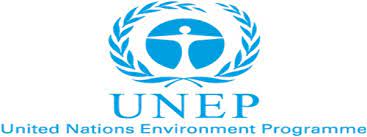JOB OPPORTUNITY
Position: Climate Finance Expert
Department/Office: United Nations Environment Programme
Duty Station: KATHMANDU
Posting Period: 20 April 2021 – 03 May 2021
Job Opening Number: 21-United Nations Environment Programme-154153-Consultant
Staffing Exercise: N/A
United Nations Core Values: Integrity, Professionalism, Respect for Diversity
Result of Service
The national consultant will support, and work in close coordination with, the NAP Project Coordinator, the Coordinator of the CWG climate finance management and the staff of the Ministry of Finance and National Planning Commission, the NAP project team, the staff of the Climate Change Management Division of the Ministry of Forests and Environment, and a team of national consultants hired by the NAP project.
Work Assignments & Outputs:
Output 1: Establish the adaptation funding gap
Tasks
- Prepare an Inception Report that elaborates the methodology, timeframe and procedure of developing the study. Collect feedback and finalise the inception report.
- Determine the adaptation funding gap by comparing existing funding with the total estimate cost of the NAP (from the economic appraisal study). Existing funding for adaptation should be based on review of recent climate public expenditure and institutional review and/or medium-term expenditure frameworks (MTEF) and reporting on external multi-lateral and bilateral funds.
Output 2: Determine finance options
Tasks (Also align with the 1.2.1 study outcomes where applicable)
- Develop climate finance chapter for the NAP document
- Using the adaptation strategies recommended in the Economic Appraisal / CBA study on adaptation options, clearly distinguish the elements of the adaptation strategies that can be privately funded and those elements that should be funded by the public purse, because of their public goods nature.
- For the elements of the adaptation strategy that can funded from the private sector, carry out a barrier analysis to understand the factors that are preventing private sector investments in adaptation;
- Develop a typology of policy, legal and fiscal tools and approach that could be used to remove barriers to private sector investment in adaptation;
- For the elements of the funding strategy that should be funded by the public purse, develop an action plan by identifying a typology of actions and outputs;
- Develop estimates of possible amounts of funding for adaptation that the typology of actions identified above could unlock or leverage, and consider these in light of the economic costs and benefits of adaptation strategies that have been determined in the previous CBA study;
Output 3: Identify operational next steps
Tasks
- Carry out consultations among government and private sector umbrella organisations to discuss and validate the private and public sector funding strategy (Also align with the outcomes of 3.3.4).
- Refine the funding strategy based on feedback from the stakeholder consultations including finalizing an action plan with timeline, responsibilities and costs.
- Develop a recommendations section on i) further work to be carried out and outline TORs ii) ToRs for future funding strategy development exercises of this nature.
Work Location: Home-based in Kathmandu
Expected duration: 4 months
Duties and Responsibilities
The United Nations Environment Programme (UNEP) is the leading global environmental authority that sets the global environmental agenda, promotes the coherent implementation of the environmental dimension of sustainable development within the United Nations system and serves as an authoritative advocate for the global environment.
UNEP’s Asia and the Pacific Office geographically serves 41 countries across the region to promote and implement sustainable development solutions. It assists countries of the region pursue sustainability, particularly in their implementation of the 2030 Agenda for Sustainable Development including technical expertise, facilitating access to finance, undertaking cutting-edge science-policy assessments, offering advisory services and strengthening laws, policies, management and governance. UNEP works with national and local authorities, civil society, other UN organizations, research institutions and the private sector to catalyze the efficient use of the region’s natural assets and reduce the degradation of the environment.
The UNFCCC Conference of the Parties at its on its sixteenth session (COP16) decided to establish a process to enable least developed country Parties to formulate and implement national adaptation plans (NAPs), building upon their experience in preparing and implementing national adaptation programmes of action, as a means of identifying medium- and long-term adaptation needs and developing and implementing strategies and programmes to address those needs (decision 1/CP.16, paragraph 15). The objectives of the NAP process are:
a) To reduce vulnerability to the impacts of climate change, by building adaptive capacity and resilience;
b) To facilitate the integration of climate change adaptation, in a coherent manner, into relevant new and existing policies, programmes and activities, in particular development planning processes and strategies, within all relevant sectors and at different levels, as appropriate;
The UNFCCC’s Least Developed Countries Expert Group (LEG) on adaptation released Guidelines for National Adaptation Plans (December 2012) and a number of Supplementary Guidelines. Furthermore, the Green Climate Fund (GCF) has issued guidance on adaptation planning approaches.
As a response to the request of the Government of Nepal, UNEP is executing the Green Climate Fund (GCF) funded project entitled “Building Capacity to Advance National Adaptation Plan Process in Nepal” (aka “NAP Project”). This project supports the Climate Change Management Division of the Ministry of Forests and Environment to reduce vulnerability to climate change, and increase resilience through integration of climate change adaptation into development planning, budgeting and monitoring processes.
Nepal’s NAP process is advancing with a number of activities already completed and quite some are in the process. Working groups in each of the thematic and cross-cutting areas as identified by the National Climate Change Policy-2019 has been formed at 11 respective coordinating ministries. One of those areas is the cross-cutting working group on ‘climate finance management’ which is led and coordinated by the Ministry of Finance. The NAP Project will develop a climate finance strategy for Nepal in close coordination with the working group of ‘climate finance management’.
An important step in the NAP process is to develop the financing strategy to enable implementation of prioritised adaptation programmes and projects attached to the NAP. The development of a dedicated financing strategy for the NAP process can define a coordinated national approach to identifying financing needs and assist prioritize potential financing sources and provide a comprehensive, step-by-step process for realizing a country’s financing goals for adaptation1. A financing strategy can be informed by three main components:
– Identifying the financing gap given the estimated total costs of the entire NAP process in comparison to the availability of existing sources of finance to meet these costs. This should draw on evidence of public benefits and financial returns in the economic appraisal / cost benefit analysis as well as extending the analysis on the potential to draw in private and public sector finance for adaptation. Existing sources of finance can be determined from baseline expenditure figures obtained from climate institutional expenditure reviews (CPEIRs) and review of medium-term expenditure frameworks (MTEFs) and annual expenditure.
– Determining financing options for prioritized adaptation actions by identifying potential sources of financing and suitable financial instruments, taking into consideration national circumstances, relationships and capacities.
The public sector is the largest source of financing in the economy and particularly important for adaptation-relevant investments. It is important that all investments in the economy build resilience to climate change and do not undermine adaptation. Mainstreaming of NAP priorities into sector plans, budgets and targets is a powerful way of increasing public financing for adaptation. Similarly, integrating NAP priorities into subnational local government plans, budgets and targets offer opportunities for assigning budgets for adaptation measures within cross-sectoral local development initiatives.2 Understanding which public goods and services the government is uniquely placed to provide can help to secure proposals for access of external multi-lateral and bilateral climate change financing, by providing public co-financing. Ministries of finance can also consider setting up financial instruments and facilities in support of adaptation such as green bonds and climate funds.
The private sector may supply adaptation technologies and services; and/or may be impacted directly or through its supply chains by the effects of climate change. Private sector engagement on adaptation may be promoted through standards and regulations for buildings and infrastructure, changes to the tax and regulation regime, through public sector (insurance and banking institutions) de-risking of private sector investments, and public-private sector partnerships. External multi-lateral and bilateral climate change funds can support piloting or expansion of promising financing mechanisms for public-private sector financing approaches.
– Identifying operational next steps to mobilise climate adaptation financing from public, private and external funding source based on the selected financing options. These steps would include engaging with Ministry of Finance, National Planning Commission and sector ministries on demonstrating the net economic and societal gains in investing public funds into sector plans and budgets that integrate adaptation strategies and introducing reforms in fiscal regimes and instruments. Engaging with private sector entities through industry umbrellas organizations (e.g. insurance, bank institutions, associations of manufacturers, etc.) to seek their engagement in the investment in adaptation technologies and services. Strengthening capacities to prepare winning project proposals to external financing sources, back up by a coherent and coordinated NAP and its financing strategy.
Nepal has made advances in strengthening its climate finance. A climate public expenditure and institutional review (CPEIR) was conducted in 2011, Based on its findings and recommendations, the Parliament of Nepal approved the National Planning Commission’s proposal for Climate change budget code in the 2012 national budget with an aim of tracking climate related expenditure and results over time. There has also been an increased public budget allocation and expenditure to climate and disaster risk reduction related institutions and actions since in 2012. The National Planning Commission, with support from UNDP and UNEP, undertook a review of the application of Nepal’s Climate Budget Code in 2013. The Ministry of Finance prepared a Climate Change Financing Framework : A Road Map to Systematically Strengthen Climate Change Mainstreaming in Planning and Budgeting (2017).
Building on these recent advances in Nepal’s climate financing, UNEP in close consultation with Government of Nepal wishes to recruited a highly qualified and dedicated national consultant to elaborate a climate finance strategy for adaptation to enable the successful implementation of the forthcoming Nepal NAP.
Qualifications/special skills
Skills:
- Knowledge and exposures of multi-stakeholder partnership framework in Nepal
- Knowledge of climate finance, climate change impacts, vulnerability and adaptation aspects in Nepal;
- Ability to work effectively within a variety of government agencies and stakeholder groups and a diversity of individuals (gender, age, language, etc.);
- Availability and commitment to perform the tasks and to deliver work on time;
- Ability to plan, prioritize and deliver tasks effectively and on time;
- Ability to work under pressure and to meet tight deadlines;
- Ability to synthesize information in a clear and well-structured manner;
- Record of working harmoniously in team;
- Experience in research and developing analytical reports;
- Sensitive on do-no-harm approach.
Academic Qualifications:
- At least Master’s degree in a relevant field such as finance, economics, public policy or related subject.
Experience:
- Minimum of 10 years work experience in climate finance mobilization including elaborating financing strategies and involving public, private and/or external (international) financing sources;
- At least two previous assignments related to climate financing for adaptation.
- A good understanding of the public budget preparation and expenditure reporting processes; particularly with regard to cross-cutting thematic areas such as gender, climate and environment sectors;
- Working experience in least developed countries and with government organizations would be an added advantage;
- Experience in developing projects for projects under bilateral and multilateral funds will be an added advantage.
Language: Excellent written and oral communication skill in English and Nepali are required.
No Fee
THE UNITED NATIONS DOES NOT CHARGE A FEE AT ANY STAGE OF THE RECRUITMENT PROCESS (APPLICATION, INTERVIEW MEETING, PROCESSING, OR TRAINING). THE UNITED NATIONS DOES NOT CONCERN ITSELF WITH INFORMATION ON APPLICANTS’ BANK ACCOUNTS.


